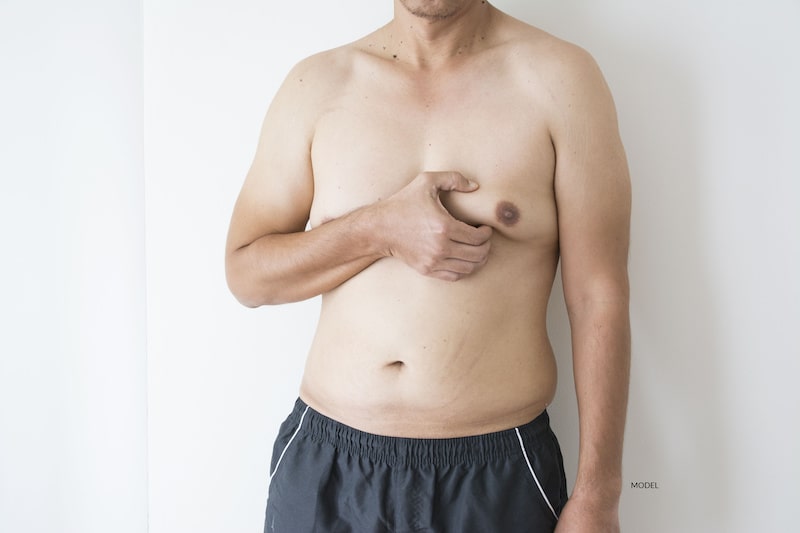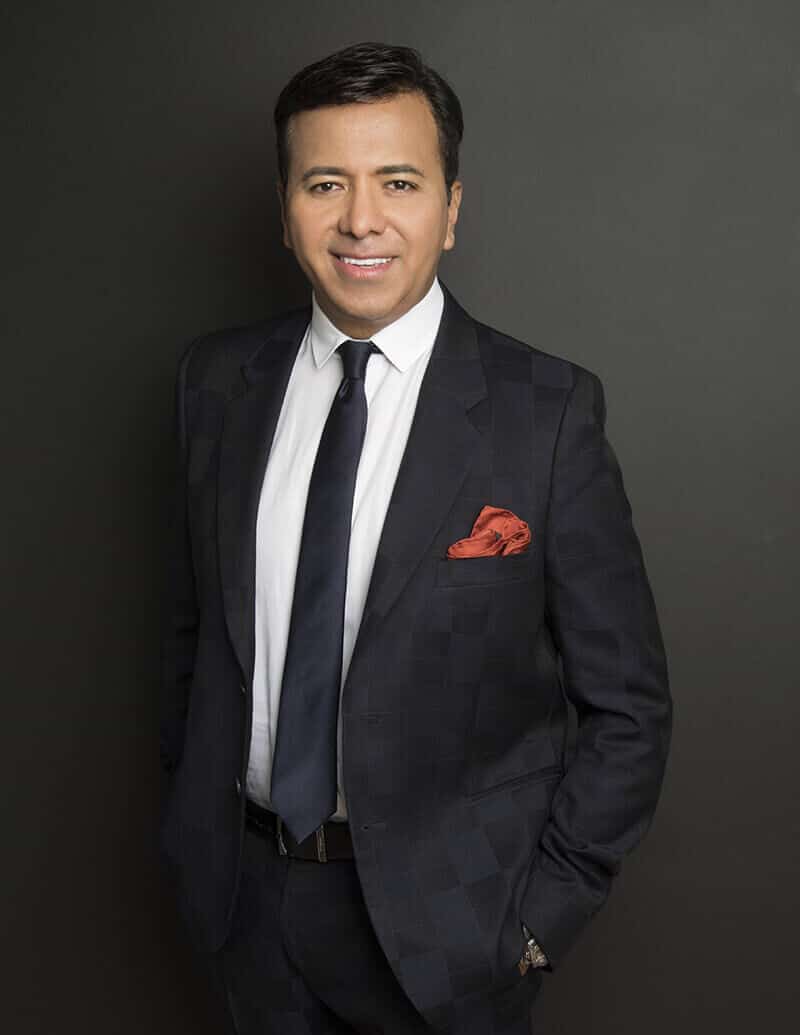Posted October 03, 2022 in Gynecomastia Surgery, Male Plastic Surgery Procedures
4 Minute Read:
Gynecomastia is a condition characterized by excess breast tissue and fat in men that can resemble a female breast. Often, this is impossible to correct with diet and exercise alone.

This condition can be caused by:
- Hormonal factors
- Medications
- Loss of skin elasticity
- Weight gain
Before undergoing surgery to correct gynecomastia, you should educate yourself about the procedure and the elements that help ensure a successful outcome.
Choosing Your Gynecomastia Surgeon
Finding a highly skilled and experienced doctor is crucial for any cosmetic surgery. Use this checklist to ensure your male breast reduction procedure is performed by a qualified plastic surgeon:
Are they board-certified?
Your surgeon should be well-trained and certified by the American Board of Plastic Surgery.
What kind of experience do they have with male plastic surgery?
Your surgeon should perform gynecomastia surgery regularly and have several years of experience. Not all plastic surgeons have significant experience with male plastic surgery; be sure to ask your preferred surgeon about this.
Where will your surgery be performed?
Your surgery should take place in an accredited facility that is well-equipped and caters to cosmetic surgery procedures.
Choosing a qualified, reputable, and board-certified plastic surgeon reduces your risk of experiencing complications during surgery and recovery while increasing your chances of healing successfully, without incident, and achieving excellent results.
Planning and Preparing for Your Gynecomastia Surgery
Consider these questions before planning a male breast reduction procedure:
Are you healthy enough for surgery?
You should be in relatively good health before undergoing any plastic surgery. Chronic conditions like diabetes and high blood pressure should be well controlled.
If you take blood thinners or any medication that can cause the blood to thin, you will need to stop before surgery and continue to avoid them for some time afterward. This may preclude you from receiving treatment for gynecomastia if discontinuing medication puts your health at risk.
Your emotional well-being is also essential, and individuals experiencing severe depression may have difficulty with the added stress of surgery and recovery. Take advantage of any support you have and set a goal to improve your mental health before undergoing cosmetic surgery, even if gynecomastia is at the root of your emotional state.
Are you currently at or close to your ideal weight?
Candidates for gynecomastia surgery should be as close to their optimal weight as possible and haven’t recently experienced any significant weight fluctuations.
If you need to slim down, take this time to accomplish your weight loss goals, and then schedule your consultation.
Do you smoke?
Surgical patients should not smoke as it can increase the risk of serious complications and interfere with the healing process, which can lead to safety issues and poor results. If you use any nicotine products, quit as soon as possible, as you’ll need weeks to eliminate it from your body.
Will you have the necessary time and support you’ll need?
Complying with your surgeon’s instructions is essential both before and after surgery. This compliance dictates getting plenty of rest and refraining from strenuous activity for a week or more to heal properly.
You should also eat a healthy diet, drink plenty of water, keep the incision sites clean, and replace bandages. Try to arrange for some personal and household help for the first day or two.
Ensuring that you are both physically and emotionally will help make your experience as positive as possible and reduce the risk of complications.
Gynecomastia Surgery Risks
The most common risks associated with gynecomastia surgery are bleeding, bruising, fluid accumulation, inverted nipples, numbness of the nipples, loss of nipple skin, scarring, loose breast skin, and asymmetry.
Dallas Gynecomastia Correction Surgery With Dr. David Morales

Dr. David Morales | Dallas, TX
Dr. David Morales is a well-respected and board-certified plastic surgeon who has been successfully correcting gynecomastia in Dallas, Texas, for many years. During your consultation, he will assess your condition, determine the best approach to use, and create a custom surgical plan to meet your unique needs.
Male breast reduction is performed under general anesthesia on an outpatient basis and involves using one, or more often, both of the following techniques:
Liposuction
With liposuction, a powerful medical vacuum is attached to a thin tube (cannula) which is inserted into the fatty areas of the chest. This requires a small incision to remove the excess fat cells.
Excision
If the cause of gynecomastia is the presence of excess glandular fat, a more traditional surgical approach (surgical excision) will be used. With this technique, the excess tissue is removed (similar to how it is removed with female breast reduction). After which, Dr. Morales recontours the remaining tissue for a more masculine appearance and trims away excess skin.
Is it Time for You to Gain New Confidence With Gynecomastia Surgery?
After considering all the aspects of gynecomastia surgery, you can make an informed decision about correcting your condition. If you decide to move forward, you can expect to feel more confident in your body, both in and out of clothing. You will also see far better results in the chest area when exercising or weight training.
Call Dr. Morales’s Dallas, Texas, office to schedule your gynecomastia surgery at (214) 827-8407.




